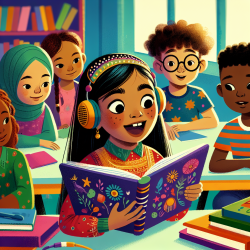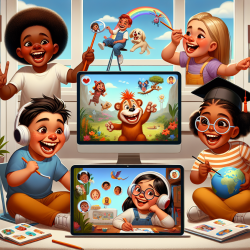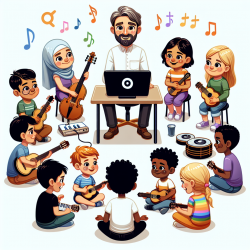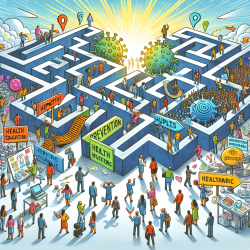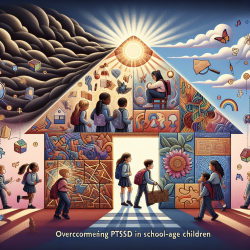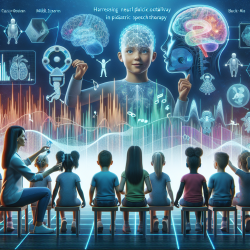As educators and therapists, our ultimate goal is to unlock the full potential of every child, especially those facing learning disabilities. A recent study, The Relationship of Storytelling Ability to Reading Comprehension in Children with Learning Disability, sheds light on the significant link between a child's ability to tell stories and their reading comprehension skills. This blog post explores how we can leverage these findings to enhance educational strategies and support our students more effectively.
The Connection Between Storytelling and Reading Comprehension
Research has long supported the theory that oral language skills are foundational to reading development. The study in question delves deeper, examining how the specific skill of storytelling correlates with reading comprehension in children with learning disabilities. By analyzing oral, fictional narratives produced by children, the study found a strong relationship between the complexity of a child's storytelling ability and their reading comprehension skills.
Why Storytelling Matters
Storytelling is not just about spinning tales; it involves a dynamic application of language, involving syntax, grammar, vocabulary, and the organization of ideas. These are the same skills required for reading comprehension. When children create stories, they practice organizing their thoughts, using language to convey meaning, and applying their understanding of narrative structures. These activities mirror the cognitive processes involved in understanding written texts, suggesting that enhancing storytelling skills could directly impact reading comprehension abilities.
Practical Applications in Education
Given the clear connection between storytelling and reading comprehension, it's imperative that we integrate storytelling exercises into our curriculum, especially for children with learning disabilities. Here are some strategies to consider:
- Story Generation Tasks: Encourage children to create their own stories based on prompts or pictures. This not only stimulates their imagination but also requires them to use language in a structured, meaningful way.
- Story Retelling: After reading a story, ask children to retell the story in their own words. This exercise helps reinforce their understanding of narrative structure and encourages the use of new vocabulary.
- Peer Storytelling Sessions: Create opportunities for children to tell stories to one another. This can be a powerful way to foster social skills and confidence in using language, in addition to reinforcing storytelling and comprehension abilities.
- Use of Digital Tools: Incorporate apps and software designed for storytelling, allowing children to create digital narratives. These tools can be particularly engaging for children and offer a unique medium for practicing storytelling skills.
Implications for Future Research and Practice
The findings from this study not only highlight the importance of storytelling in reading development but also suggest areas for further research. For instance, investigating the impact of specific storytelling interventions on reading comprehension could provide valuable insights into how best to support children with learning disabilities. Additionally, exploring the role of storytelling in other aspects of learning, such as critical thinking and empathy, could further underscore its value in education.
Conclusion
Storytelling is a powerful tool that can significantly enhance reading comprehension in children with learning disabilities. By incorporating storytelling into our educational strategies, we can provide these children with a fun, engaging way to practice essential reading skills. As educators, it's our responsibility to explore and implement evidence-based practices that can make a real difference in our students' lives.
For those interested in delving deeper into the research behind these findings, I highly recommend reading the original study. The Relationship of Storytelling Ability to Reading Comprehension in Children with Learning Disability.
